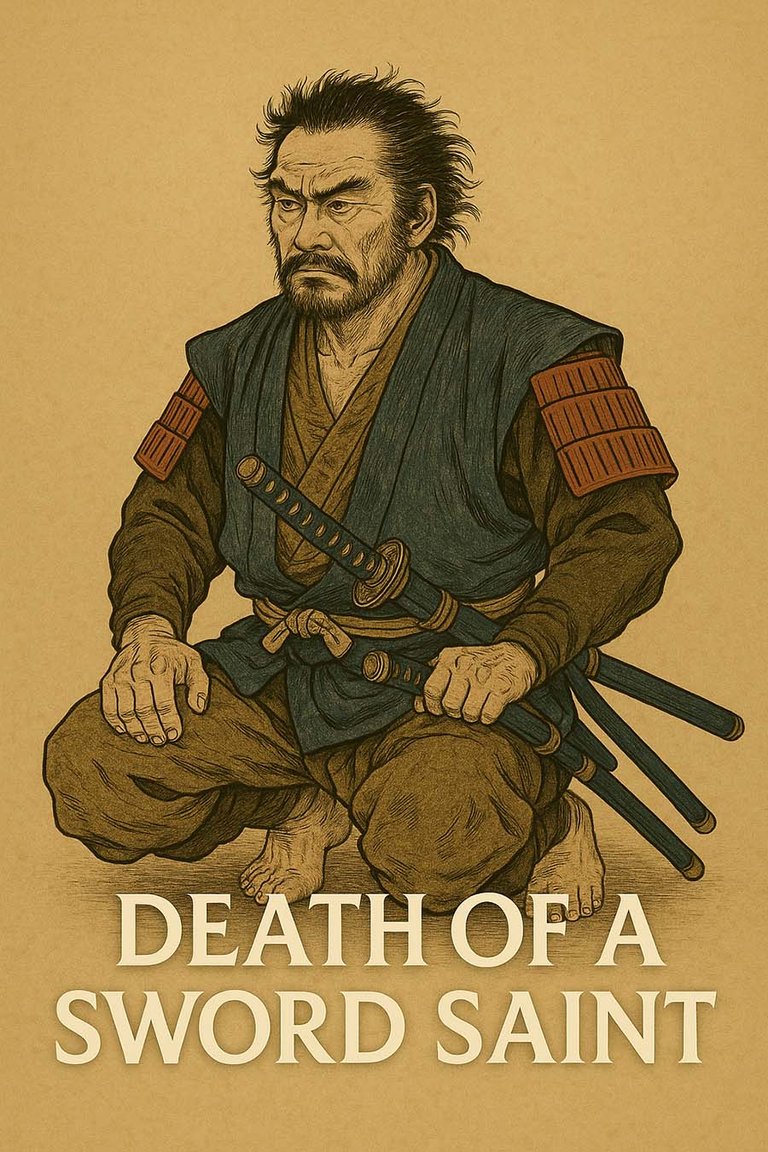June 13th marks the death of Miyamoto Musashi, arguably Japan’s most legendary swordsman. He died in 1645, nearly four centuries ago, yet his life and philosophy continue to capture imaginations around the world — sword students, strategy enthusiasts, martial artists, and even corporate executives still study the writings he left behind.

A Life in the Sword
Musashi was born around 1584, though the exact year remains uncertain. He grew up during a time of civil war — the final chaotic decades of the Sengoku period, just before the Tokugawa shogunate unified the country under one rule.
Musashi fought his first duel at the age of 13. His opponent was a grown man, a professional samurai. Musashi killed him. This was not a boy besting another kid with a wooden sword; this was a real, lethal match.
That duel set the tone for his entire life.
He would go on to fight over 60 duels, never once losing. Among his most famous victories was his duel against Sasaki Kojirō on Ganryūjima, a small island between Honshu and Kyushu. The story is near-mythic: Musashi arrived late, carved a wooden sword from an oar on the way over, and struck Kojirō dead with a single blow. His timing, strategy, and psychological manipulation were as deadly as the sword itself.
Unlike other swordsmen, Musashi didn’t align himself permanently with any one lord. He was a rōnin — a masterless samurai — wandering the land, fighting duels, studying the art of combat, and refining his style. That style eventually became known as Niten Ichi-ryū, or “The School of the Two Heavens as One”, based on the simultaneous use of both long and short swords.
But Musashi’s fame today is not just about violence. He’s remembered not just as a killer, but as a thinker.
In his later years, Musashi turned increasingly inward, focusing on the underlying principles behind combat. He understood fighting as more than just technique — it was strategy, mindset, and clarity. This culminated in his short book Dokkōdō (“The Path of Aloneness”) and his more detailed manual Go Rin No Sho (“The Book of Five Rings”).
These weren’t just manuals for swordsmanship — they were guides to life, steeped in Zen influence and honed through decades of deadly experience.
The Final Days
In 1643, Musashi retired to a cave called Reigandō near Kumamoto. His body was failing — likely due to cancer — but his mind remained sharp. It was there, in that cave, that he wrote “The Book of Five Rings”, dictating it to a student in the months leading up to his death.
On June 13, 1645, Musashi knew his time had come.
According to legend, he put on his armor one final time and sat in the formal seiza posture, his sword at his side. Facing east, he waited calmly for death, just as he had calmly faced every opponent in his life. He died not on a battlefield, but in meditation — still, poised, unshaken. Like everything else in his life, he met death with full awareness.
He was around 60 years old.
His body was buried in armor, upright, with a sword at his side — still ready, even in death.
Legacy
Today, Musashi is remembered as more than just a samurai. He is a kensei — a sword saint.
His writings are still in print. “The Book of Five Rings” is fairly famous in the West, so if you have any interest in martial arts or even in self-improvement, you’ve probably come across it in the bookstore.
His duels are reënacted in film and fiction. His name appears in manga, anime, business manuals, and even self-help books. His grave near Kumamoto remains a place of pilgrimage. And his advice — on how to see clearly, how to win without falling into ego, how to act decisively and without hesitation — still resonates.
He lived by the sword, yes. But he also lived by insight. And that is what keeps him alive today.

If you have any interest in his life, I recommend “Musashi” by Eiji Yoshikawa. The English translation is pretty good. Eiji Yoshikawa was a very popular author of historic fiction, and this was one of his best novels. It takes some liberties, as historical fiction tends to do, but it stays remarkably true to the spirit and arc of Musashi’s life. It’s a fantastic read.